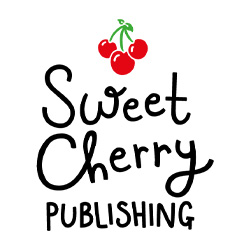
I’m Molly, I’ve been working in UK Sales here at Sweet Cherry for six months now. I’ve known I wanted to work in publishing for a couple of years, and I definitely had a whole host of misconceptions about what it would be like and how to go about getting a job, as well as hearing them from other people. Here, I’ve come up with just a few of the common myths and tried to bust them for you.
1. You have to have an English degree
This is definitely not true! Of our team of seven here at Sweet Cherry, only one of us has a straight up English degree. Whether we studied it in combination with something else, or we did a different course entirely, we all come from different backgrounds. I think that’s part of what makes our team so great; we have different ideas and opinions.
Personally, I studied French and Russian at university, which comes in handy in lots of unexpected ways. Not only have I been to Moscow and pitched Sweet Cherry titles in Russian at the Moscow International Book Fair, I also think that the communication skills I learnt from studying languages are useful every day when I’m contacting and meeting buyers for all our books. Don’t worry if you aren’t studying English, no matter what you studied it’s more important that you can show what you’ve learnt that will come in handy at a job in publishing. An English degree is brilliant, because we love people who love books, but you’ve got to have more than that.
2. It’s just reading books all the time.
It really isn’t (although I would love it if it were). Obviously, we do read the books we publish, but most of our jobs don’t revolve around reading the books. I spend most of my time emailing, calling and meeting with people to tell them about our books. Even when the editors do work on the books, it’s not just reading, and on top of that they act as our point of contact with the authors, do market research for future acquisitions, and check all of the written material you see, whether it’s in marketing material, on the website or in the books is up to scratch. Working in publishing is super varied, and we look for people who are as up for that as we are.
3. Putting a book together is as easy as pressing print.
This might seem obvious, but the number of people who think this is surprising. There’s so much behind the scenes work that goes into making a book happen. Not only does it have to go through a lengthy editorial process, but we have to design a cover (or five, if we can’t settle on one), plan a marketing strategy, sell it to people who then sell it to the general public, plan and put on events to let everyone know about it… The list goes on, and even then it gets pitched to foreign publishers, who translate it and then do the whole process all over again!
4. Print is dead.
This is something that a lot of people said to me when I started talking about wanting to work in publishing, but if you look into it, sales on print books are up and digital sales are down. This is especially true in children’s publishing, where ebook sales are tiny in comparison to printed books.
The pretty widespread idea that publishing is a dying industry is really inaccurate. While we have to think more creatively than we used to, this has made publishing an even more vibrant, exciting industry to be a part of. The best thing about publishing is the enthusiasm people have for their work, especially in children’s books, where there are so many people doing amazing work to get kids reading. I think that the need to adapt and modernise has meant that people are even more driven and enthusiastic.
5. It’s impossible to get into the publishing industry.
I won’t lie, it is competitive, but it’s not impossible. If it were, none of us would be here! It’s important to think a little creatively about it.
Don’t get stuck in the idea of working for one of the big five, there are lots of independent publishers, academic publishers and magazine publishers which are all great places to work, and will get you the experience you need. My personal experience has been that working in a small company gives me insight into how a whole publishing company works, because I get to see the entire process. If I were part of the sales team at a big company, I wouldn’t know anything about the editorial or production process, I would never have gone to Russia to pitch foreign rights to our titles, and I wouldn’t get to go to marketing events.
The biggest thing to remember is persistence. You do have to be really committed, but if you keep trying, get as much experience as you can and keep asking questions, you will get there eventually!

